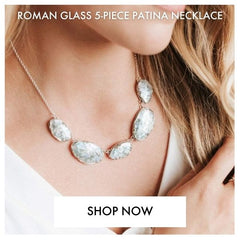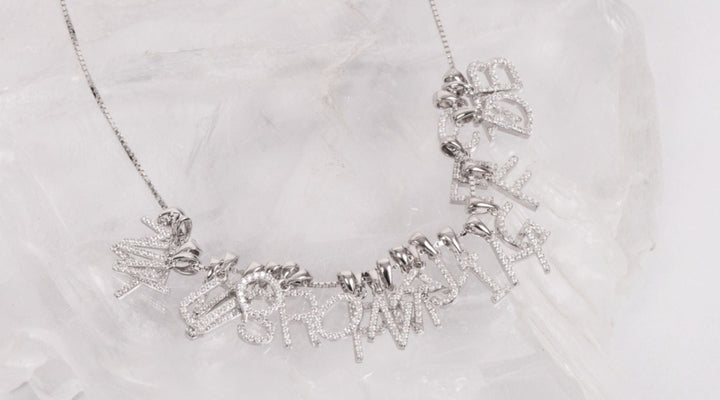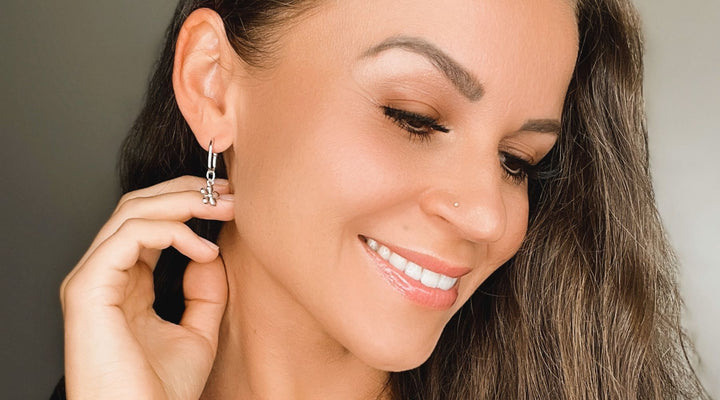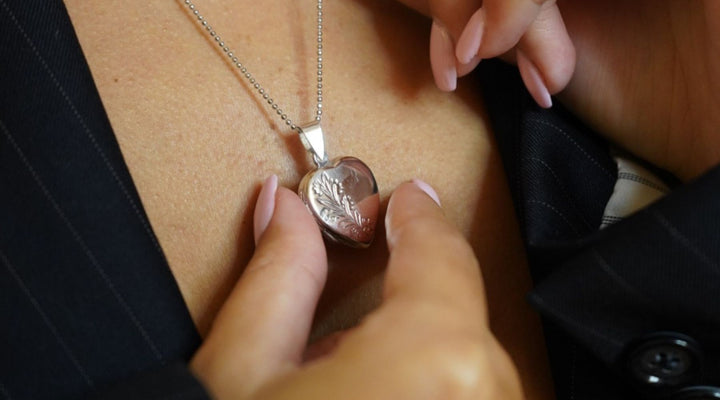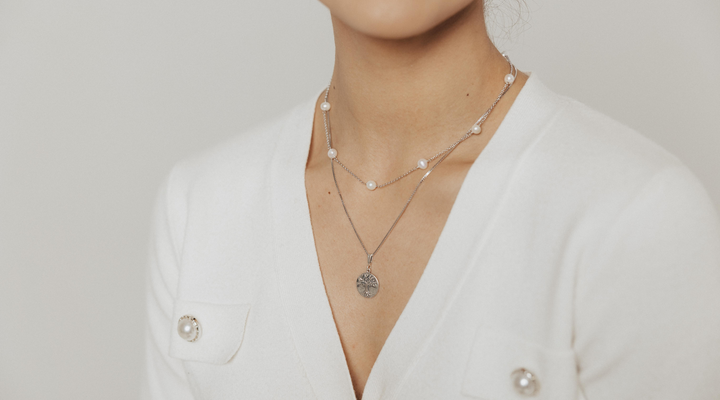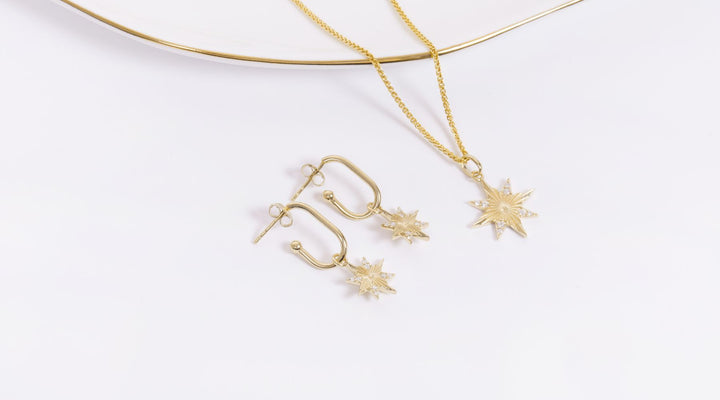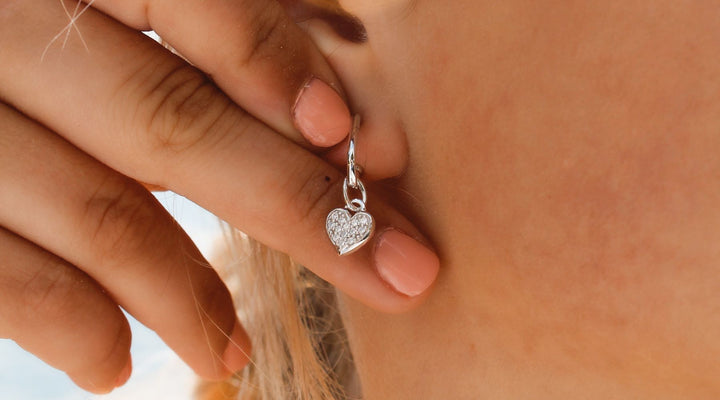What is Roman Glass Jewelry?
Posted by Deven Davis on
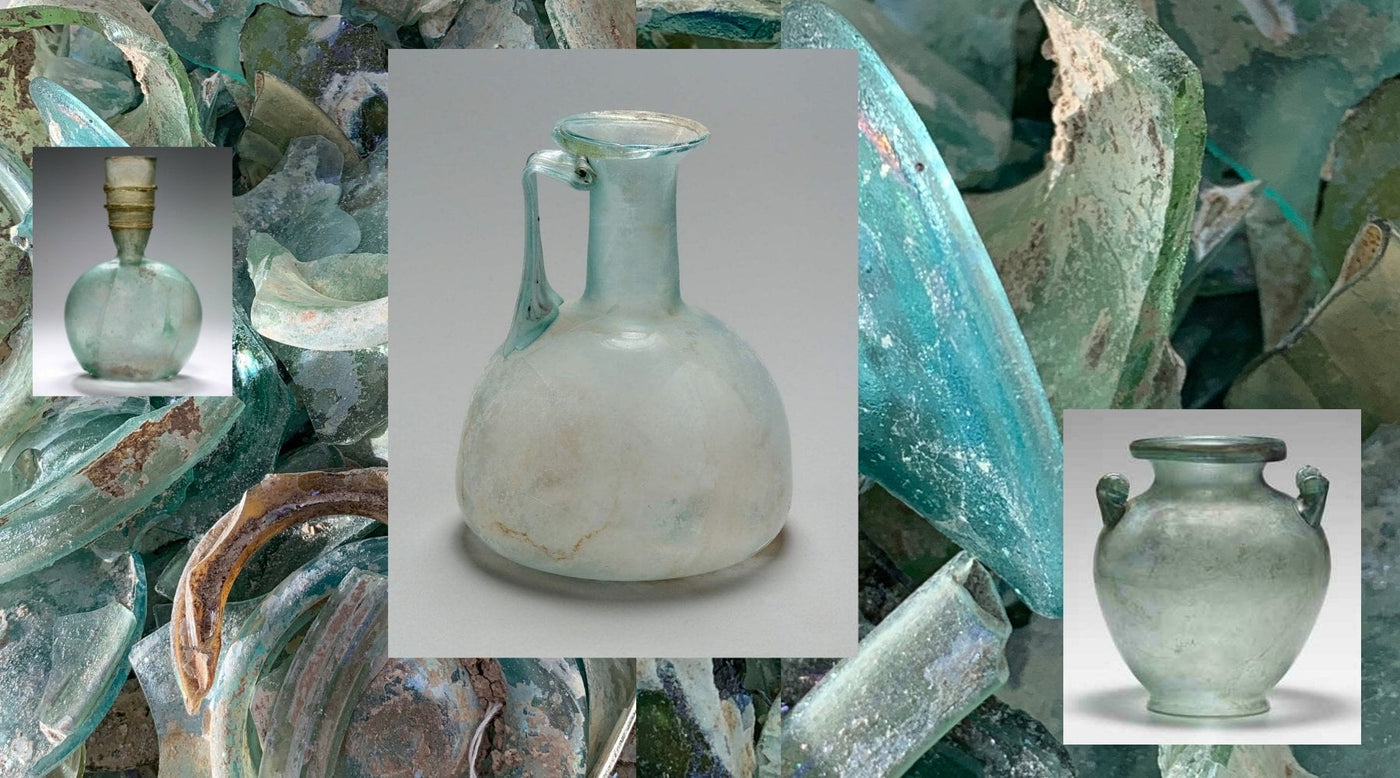
Roman Glass Jewelry
The Roman Empire is recognized for having built a great civilization, with renowned artistic and technological achievements. At its peak, Rome had conquered and controlled the entire area surrounding the Mediterranean Sea.
The Romans began and oversaw the industrialization of glass-making in and around Jerusalem more than 2000 years ago. Largely due to its strategic location (and an abundance of sand) along the Mediterranean coast, Israel served as a major glass-making center.
Keyword: Roman Glass
2000-Year-Old Creations Reborn
With that knowledge, let's whisk ourselves away to the glass making centers in and around Jerusalem nearly 2000 years ago!
Each unique piece of Roman Glass Jewelry is expertly handcrafted using a fragment of ancient glass discovered at an archeological excavation site in modern-day Israel.
This ancient glass has now been transformed into some of the most strikingly beautiful and unique jewelry in the entire world.
A Story Behind Each Piece
The glass in this aqua-hued jewelry began life as a household vase, water jug, or temple vessel. It belonged to someone. It was used and perhaps even treasured. There is genuine history and a unique story behind each piece.
Intact vases and urns are occasionally excavated and displayed in museums or auctioned to antiquities collectors. More commonly, though, the glass is discovered in broken shards and fragments. Having rested undisturbed for centuries, these fragments still bear the marks of their former lives and they have also been transformed by the very earth in which they have slumbered.
Those lucky enough to own a piece of precious Roman Glass jewelry that has been reborn as a necklace, pendant, earring, or ring are literally wearing a small piece of 2000-year-old history.
Heirloom-Quality Artisan Jewelry
After the glass fragments are carefully collected and expertly cleaned, the process of giving them new life begins. Each piece is individually shaped and carefully placed in the finest hand-crafted sterling silver setting by skilled artisans. The work is painstakingly precise and requires the talents and dedication of a seasoned team of passionate jewelry professionals in Israel.
Roman Glass Jewelry is designed and created to be handed down from generation to generation - continuing the legacy and story of the ancient glass for centuries to come. The quality of material and workmanship that goes into every piece is world-class. Roman Glass Jewelry ordered from Roma includes a certificate of authenticity.
The Formation of Natural Patina
The "patina" (exquisite surface coloring) has been created by chemical interactions between the buried glass and the mineral-rich soil found throughout Israel. After centuries of being buried, a thin layer of patina is formed on the glass. This process of oxidation creates various shades of blues and greens, purples, and even some pinks. As the exact coloration depends on the minerals and conditions to which the glass has been exposed, each piece is truly unique. Immersion in water may harm the natural patina, so it is highly recommended that Roma Glass jewelry be removed prior to bathing or swimming.
See our entire online Roman Glass Collection
Romans Pioneered Glass Blowing Techniques
The Roman Empire is recognized for having built a great civilization, with renowned artistic and technological achievements. At its peak, Rome controlled the entire Mediterranean Sea and oversaw the industrialization of glass-making roughly 2000 years ago. Due to its strategic location along the Mediterranean coast, Israel served as a major glass-making center.
The pioneering of new glass blowing techniques brought about a revolutionary change in the lives of the common people as household glass items such as plates, bowls, and jars, were no longer limited to aristocratic circles. In fact, the industrialization of glass-making is considered one of the Empire's greatest technological achievements.
Roman Glass Frequently Asked Questions
Where does the glass come from?
The glass is excavated in Israel, in archeological sites dating back to the period of the Romans, who refined glass-making and were leaders in developing the glass making industry roughly 2000 years ago. It was an industrial revolution and Israel became a major glass-making center. Glass, once rarity found only in the homes of royalty and the wealthy, became a common household object, used for everyday items such as plates, bowls, and jars.
Isn't there a limited supply of this glass?
True, the supply is not infinite and the glass cannot be manufactured artificially. However, Israel is one of the few locations in the world in which a series of geological and climatic phenomena coincide - enabling the formation and preservation of the strikingly colorful glass. Two thousand years of contact with mineral-rich soil couples with oxidation to form the precious glass.
Why is each piece shaped a little differently?
The fragment of glass inlaid in each piece of jewelry was originally part of a plate, vase, cup, or other household or temple object used two thousand years ago. Each object was hand-blown glass. This accounts for the slight variation of shape and thickness of the glass fragments.
Why is each piece colored differently?
The glass has been exposed to oxide rich damp soil for close to 2000 years. This exposure results in the formation of the colorful outer layer (patina). Colors vary depending on the minerals and the conditions to which the glass has been exposed. Each and every piece of glass is unique.
Is there any special treatment required?
Roman Glass jewelry should be treated as any other fine jewel. Creations with inlaid fragments of glass coated with a layer of natural patina should not come into contact with water or liquid polish. A bit of rain won't hurt, but it's best to remove the jewelry before bathing or swimming.


